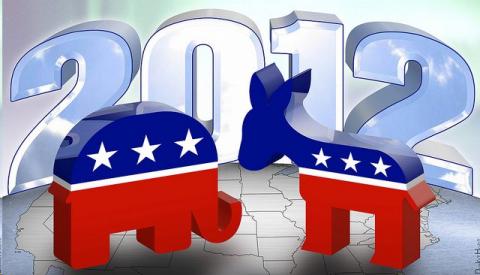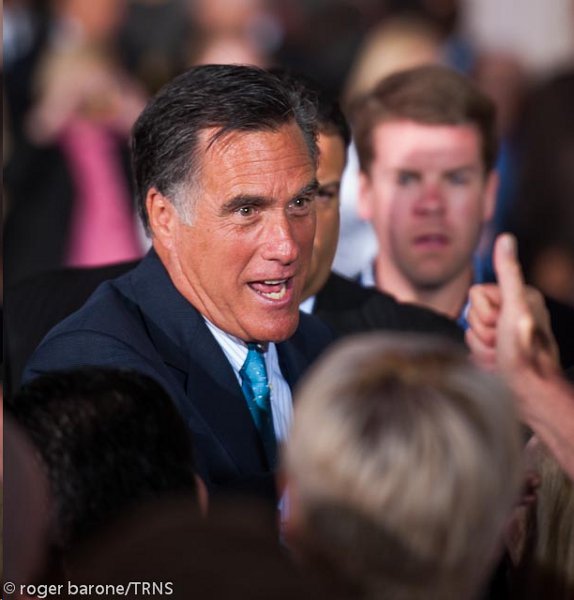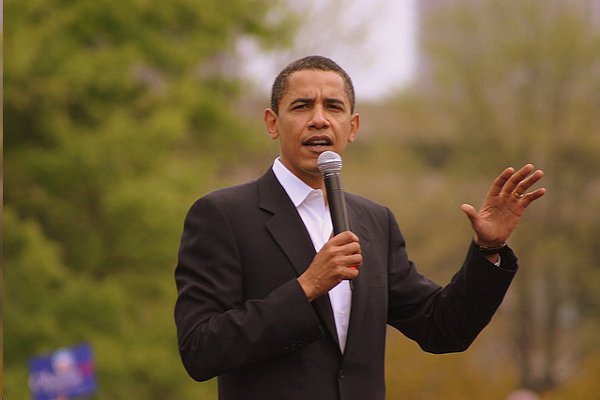Democrat v. Republican: What’s the Difference, Really?

It’s election time again in the USA. Time to tune in to your 24-hour news network of choice (which is devoting at least half of its programming to anything even remotely related to the contest), familiarize yourself with the leading slogans (“Country First,” anyone?), read up on the issues, and make an informed decision. Or, do what you always do and vote straight Democrat or Republican regardless of the quality of the candidate.
Approximately 95 percent of voters will, indeed, select the candidate from one of the two major parties. But taking a close look at the election process as well as the records of the presidents and congresses of recent memory begs the question: Is politics and its attendant airtime saturation, heated debates, surreptitious deals, machinations, backbiting, and vitriol largely a waste of time and energy for those of us (that is, the 99.999 percent of Americans who are not politicians, federal agency heads, high-ranking military personnel, powerful lobbyists, media moguls, national union presidents, chief executives of large corporations, or billionaires – or those closely associated with any of them) who realistically have little voice in state affairs?
While poor voter turnout in contemporary elections has received much attention, evidently indolence and ignorance are American traditions nearly as old as the nation itself. In the 46 presidential elections held since 1828, the average voter turnout has been an unimpressive 64 percent. Since the 1904 election, the average drops to 57 percent, and the last time turnout topped 60 percent (barely) was 1968.
Even in 2008, a year in which an African-American who promised sweeping “change” was running in the midst of the greatest financial catastrophe since the onset of the Great Depression, only 57 percent of eligible voters did so. But, as previously mentioned, there is more to explain this indifference than merely laziness or lack of education. There are those who believe, for various reasons, that neither their engagement in politics nor their vote will matter; and, frankly, it’s a far easier position to take than to argue against.
The biggest insult to the voting public is when the “victor” manages to win the electoral vote but lose the popular vote. This happened in 1824, 1876, 1888, and 2000. It’s also worth noting that in 1968, Richard Nixon received 301 electoral votes to his opponent’s 191, yet he received only about 500,000 more popular votes. That debacle resulted in a failed attempt to do away with the Electoral College, which is probably the most significant thing that can be done to increase civic participation. If you’re a Republican in California or a Democrat in Mississippi, showing up at the polls on Election Day is fairly pointless. In fact, most of the states are written off by the candidates as not worth their time or attention as they are considered to be solidly in one camp or the other.
What happens, then, is that the large “swing states” become all-important in the race (Ohio, Pennsylvania, Florida, etc.), so that the election is basically won or lost by a relatively small percentage of voters. So if you’re lucky enough to be living in Cleveland or Jacksonville, Obama and Romney want to talk to you.
Campaign financing is another major source of voter apathy. Two notable attempts have been made to curb the influence of money in politics, the Federal Election Campaign Act of 1971 and the McCain-Feingold Act of 2002. These acts sought to increase transparency, set contribution limits, and so on. However, the 2010 Supreme Court ruling allowing corporations and unions to make unlimited donations to Political Action Committees (on the grounds of “free speech”), which in turn directly fund political activities, seems to have set reform efforts back decades. A dismantling of this ruling, as well as mandating partial public financing of elections (politicians spend a significant amount of time raising money when they could instead be doing their jobs), would help restore voter confidence in the election process.
Ask Jack Abramoff about the effect of money on politics: "Lobbyists and special interests aren't going to be spending their money to promote and support events like this out of altruism and the goodness of their heart," he said. "They're doing it because they have an agenda. They may be good agendas, by the way, but they're still agendas that are fed by an improper use of financial resources in a way that tilts it away from members deciding things only on their merits." And the lobbyists’ stranglehold on Washington does not end with an election, as they sometimes actually write legislation. Isn’t that what our elected officials are supposed to do?

Furthermore, it seems increasingly apparent that the formation of a true third party (Independents unite!) would also be a boon for civic participation. Such a party must go beyond the likes of the Greens/Occupiers and Libertarians/Tea Partiers since both are too far left and right, respectively, to be a vital force in American politics. Perhaps an amalgamation of the Occupiers and Tea Partiers? Both of whom, despite being constantly vilified, have at least some good ideas. Indeed, what these groups have accomplished is that they have contributed to the mainstream political dialogue on important issues.
Presently, most Americans believe that voting for a third-party candidate who has no chance of winning is a waste of time. By voting for one of the two people who are capable of winning, the voter becomes a small part of that movement. Fair enough, but as demonstrated below, it may very well be that those voting for one of the two major candidates are wasting their votes.
What does it really mean to be a Democrat or Republican in modern times then? The distinction between the two has become muddled over the years as large numbers in both parties betray their ideologies/overturn assumptions about their loyalties. For example:
· 77% of Democrats voted for the passage of the Graham-Leach-Bliley Act, which repealed part of the Glass-Steagall Act, empowering financial institutions to consolidate their operations in order to increase their profits. The repeal is widely credited as being a primary factor in the financial crisis of 2008-09.
· 43% of Democrats voted for the most recent war in Iraq.
· 88% of Republicans voted for a huge expansion of Medicare coverage, while 89% of Democrats voted against it.
· The Coburn Amendment sought to remove funds for Alaska’s infamous “Bridge to Nowhere” and divert them to rebuild a bridge destroyed by Hurricane Katrina. 80% of Republicans voted against it.
· 60% of House Democrats voted for H.R. 3997, the original 2008 bank bailout proposal, while only 33% of House Republicans did.
· In the 2010 Congressional elections, 38% of House Democrats’ total funds were raised from Political Action Committees (corporations and unions) versus 24% for House Republicans.

In fairness, legislation such as the ones cited above can often get complicated. But it’s clear that most members of Congress are not really loyal to their party ideologies the way their constituents who voted them into office are. They are loyal primarily to political expediency, which for them really means, “How will this vote affect my political career/ability to get re-elected?” Since 2008, there has been a slight shift in voter registration as 2.5 million people have left the Democratic and Republican parties, while the ranks of the Independents has seen a modest increase.
And what about when the POTUS gets into office? How many of his campaign promises does he actually keep? The political process is a complex one, full of many compromises. Which, of course, is a good thing in that one side does not wield too much power. But let’s face it, political candidates frequently say whatever they think will get them elected, and then do what they think is best once they get in office.
Here’s a look at recent presidents and how closely their actions aligned with the ideology their respective parties espouse and the campaign promises they made:
· (D) Johnson –Oversaw a troop increase in Vietnam from 16,000 in 1963 to 536,000 in 1968.
· (R) Nixon –Stated that “new leadership will end the war” in Vietnam.
· (D) Carter –Did nothing to stop the Cambodian genocide.
· (R) Reagan –Instituted a massive increase in the federal deficit.
· (R) Bush, Sr. – “Read my lips: no new taxes.”
· (D) Clinton –Did little to stop the Rwandan genocide; signed into law the Graham-Leach-Bliley Act.
· (R) Bush, Jr. –Signed into law a huge expansion of Medicare.
· (D) Obama –Has done little to establish accountability for the financial crisis of 2008-09; his 2010 budget for the Department of Defense was $533.8 billion, up from $515.4 billion that Bush, Jr. had requested the previous year.
Finally, the discourse in a typical presidential race is characterized by half-truths, hypocrisy, manipulation, fear mongering, attacks, and partisan rancor. In other words, “politics as usual.” This alone is enough to turn off anyone with a modicum of common sense and decency, without even taking into consideration the Electoral College, campaign financing, lack of a vibrant third party, and ideological betrayal and broken campaign promises which are certain to follow.
Despite (or perhaps because of) the epic events, movements, and changes the country has witnessed since the new millennium, Americans are largely as complacent as ever. The power elite are content that the average citizen continues to point a finger at the other side for the nation’s ills (the “evil conservatives,” the “bleeding-heart liberals”), knowing that most have still not figured out that the joke is really on all of us – Democrat and Republican, liberal and conservative alike – and that the political game in its present state is one not really worth playing unless you’re one of the 0.001 percent.
Author Bio:
David Barwinski is a contributing writer at Highbrow Magazine.
Photos: Donkey hote, Stef Rich, Roger Barone - TRNS (Flickr, Creative Commons).





























































































































































































































































































































